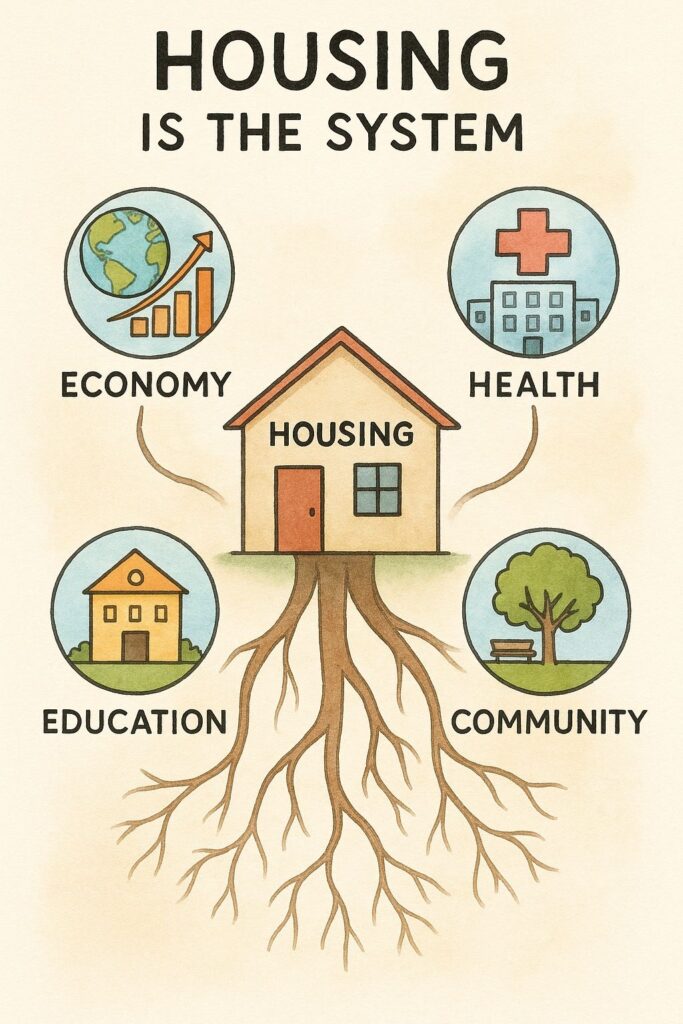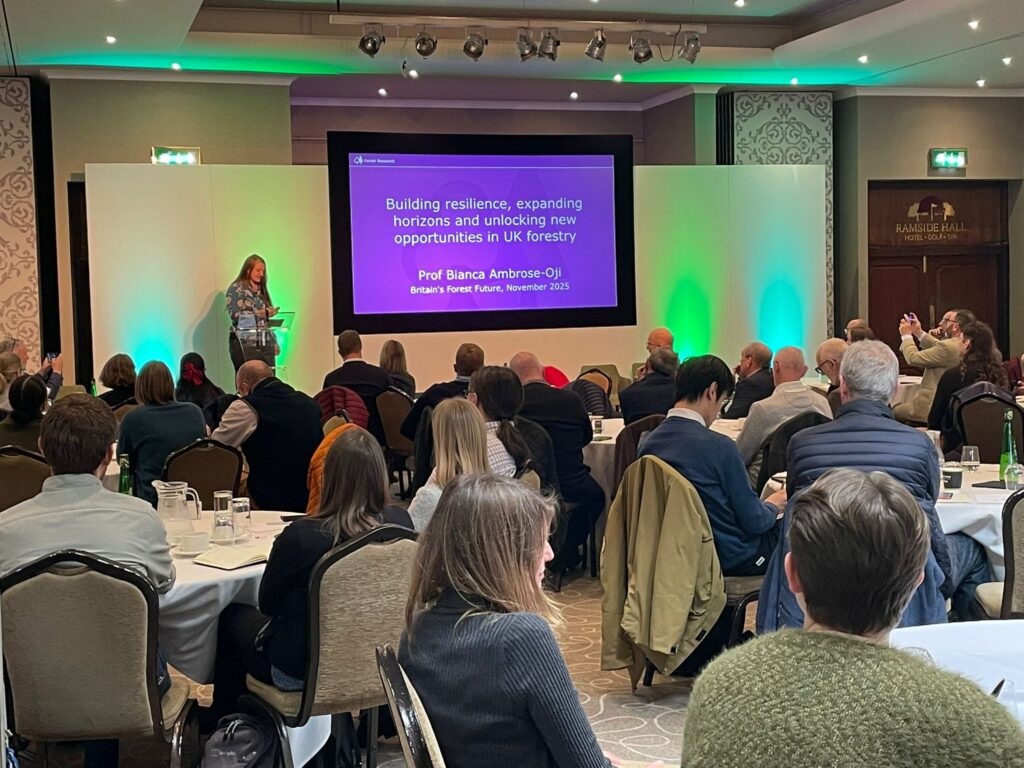This week is Rural Housing Week (7 – 11 July), Demelza Jones considers why rural affordable housing is so crucial to a thriving and sustainable countryside, as well as highlighting some recent and ongoing CCRI research in this area.
The lack of affordable housing in many rural communities represents a critical challenge to the economic and social resilience of the countryside.
In England, house prices in rural areas have increased to a greater extent than in urban areas and have outstripped local wage increases to represent an average 10% gap between rural house prices and wages. Less rural housing stock is owned and managed by affordable housing providers than in urban areas; rural social housing waiting lists have risen in all but two English regions since 2020/21; and rural homelessness has increased by an estimated 40% since 2018/19.[i] In areas with strong visitor economies, proliferation of second homes and short-term lets further reduces supply, while counter-urban mobilities have impacted both purchase and rental markets,, placing further pressures on affordability for those whose incomes are linked to rural economies.[ii]
Young people are particularly affected by this crisis, with many younger rural residents compelled to relocate and young families struggling to remain in a village as their need for household space increases. This leads to skills shortages, labour market pressures, and weakened local economies, as well as leaving older residents without a local support network. The viability of essential local services and amenities are also then at risk, to the detriment of rural residents of all ages.[iii]
A recent LinkedIn post by Melissa Vassiliou – a housing professional in Australia (another nation grappling with an affordable housing crisis) – powerfully describes housing as ‘the system’:
‘We keep treating housing like a niche policy area. A local concern. A planning issue. But the truth is: housing is the foundation of everything – economy, health, mental wellbeing, education, social cohesion … We keep acting like housing is part of the system, when in fact — housing is the system.
Health outcomes rise and fall with housing.
Children’s futures are shaped by their living environments.
Economic mobility starts with having a stable place to call home.
Mental health thrives or suffers depending on what surrounds us.’

Melissa’s insightful post isn’t focused on rural housing, but the sentiment is equally true in the rural communities here struggling with their own affordability issues, as evident from CCRI’s recent work providing independent evaluation of the Defra-funded Rural Housing Enabler programme. Rural Housing Enablers (RHEs) are independent specialists who work with communities and local partners (Parish, District and County Councils, housing providers and rural communities) to help progress rural affordable homes schemes. The Defra funding has supported a new network of RHE posts across England, managed by Action with Communities in Rural England (ACRE).
The RHEs and local partners who we spoke with during the evaluation highlighted the importance of RHEs in speaking up for communities’ needs, in a context where rural affordable housing is often overlooked due to resource pressures on local authorities, and focus-pull towards larger urban schemes as councils strive to meet housing targets. We also heard from completed scheme residents about the impact on their health, financial security and wellbeing of having a secure affordable home in their local community. For some, this came after years of living far from their family or support networks, renting expensive and poor-quality properties that hadn’t met their needs, enduring frequent and costly moves due to insecure tenancies, or experiencing periods of homelessness. RHEs and local partners additionally explained the clear benefits of ‘natural neighbourhoods’ of residents of diverse ages and income brackets, and the importance of enabling young families to live in villages to secure the future of local services and arrest a cycle of decline.
We are at a point of opportunity and risk in addressing the rural affordable housing crisis.
Large-scale, rapid delivery of new affordable homes is high on the national policy agenda as one of the Labour government’s core missions, alongside a promise of the biggest boost to social housing for a generation. It is imperative that this ambitious programme does not overlook rural communities in favour of more economically attractive, less complex, and larger-scale urban development, and that there is proportionate focus on the rural in delivery.
This national focus on affordable homes takes place alongside far-reaching changes to local government under the English Devolution programme, which will see the restructuring of England’s remaining multi-tier governance areas into unitary councils, and the expansion of Combined Mayoral and Strategic Authorities with increased powers over policy areas including housing. It is essential to understand how this transformation impacts national and local efforts to address rural affordable housing needs, and this question is being explored in CCRI research commissioned by the Rural Housing Network. The research examines lessons learnt from existing and ongoing devolution examples via evidence review and case studies in counties at varying stages of the devolution ‘journey’. It will result in recommendations for how devolution processes can safeguard and expand, rather than threaten, the provision of the affordable homes so many rural communities desperately need to thrive into the future.
[i] Campaign to Protect Rural England (CPRE) (2023) Unravelling a crisis: The state of rural affordable housing in England. https://www.cpre.org.uk/wp-content/uploads/2023/11/State-of-Rural-Affordable-Housing_online.pdf
[ii] County Councils Network (2024) Housing in Counties: Delivering homes for all, in the right places. https://www.countycouncilsnetwork.org.uk/number-of-renters-in-rural-areas-increased-faster-than-london-over-the-last-decade-as-new-report-calls-for-a-long-term-plan-for-housing/;
Gallent, N., Purves, A. Stirling, P. and Hamiduddin, I. (2024) Enabling the delivery of rural affordable housing in England. Journal of Rural Studies. 111. https://doi.org/10.1016/j.jrurstud.2024.103433
[iii] Campaign to Protect Rural England (CPRE) (2021) Outpriced and overlooked: Why young people feel forced to leave rural areas. https://www.cpre.org.uk/wp-content/uploads/2021/10/2021_CPRE_Young-people-in-rural-areas_full-report.pdf




